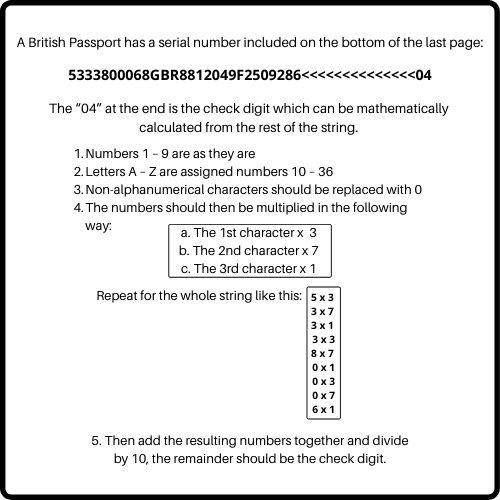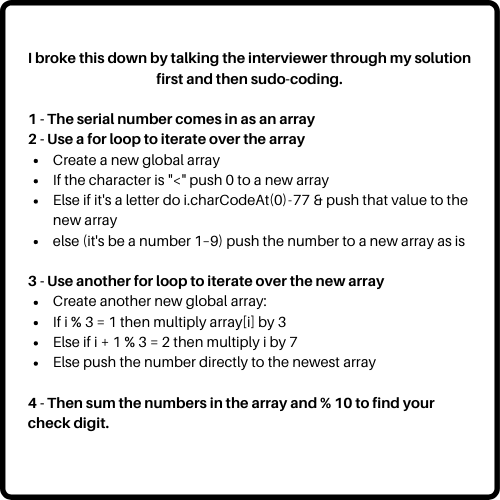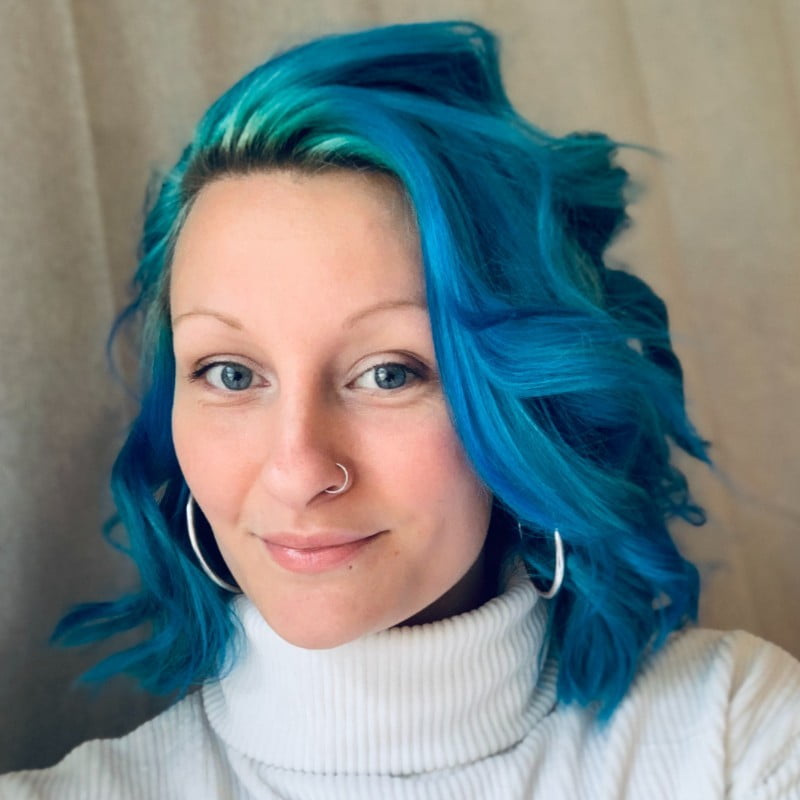Application 1 — Junior Developer — Digital Agency
I made the application through LinkedIn when I was about halfway through Bootcamp. I came across the vacancy while searching in the live vacancy listings on LinkedIn. I sent a request to connect to the Managing Director (in this case, the job poster) and sent a short message:
Hi [Hiring Manager]
I really like what I’ve seen of [the company] on social media channels, I notice you’re currently recruiting for a junior developer and wanted to express an interest.
I am a Software Engineer from Maidstone (only relevant if applying for an in-house position), I began self-teaching programming in May and am currently studying the Software Engineering Immersive with General Assembly, finishing up 12th December 2020. I’ve mainly focused on Frontend up until now, but I am in the process of learning React (loving it) and will be in building full stack applications by the time I graduate. You can see some of my previous work here:
[insert link to portfolio]
From what I’ve seen, I think we’d be a great fit and I’d love the opportunity to chat more with you about [company name] and the role if you have some time available.
Look forward to hearing from you.
Laura
I was invited to interview a week later. We weren’t in such strict lockdown then, so the interview was in person at their office. It was a 1-hour-long interview where I chatted with the Managing Director and the Senior Developer. We spoke about the role, the expectations of the role and the direction they were hoping for the company.
There were very few technical questions other than which version of JavaScript I was using and did I know how to use arrow functions and array methods.
I wasn’t selected for the position, but their only feedback was to find a CMS or programming language that I particularly liked and search for roles programming in that language.
Application 2 — Frontend Developer — Start Up
In my last week of bootcamp, I saw an ad on LinkedIn for a Frontend Developer at a local start up. The ad asked that you send a message to the CEO on the LinkedIn to express your interest, so I did just that.
My message was very similar to the one above. I know they say you should tailor your cover letter for each role, but when sending a message through LinkedIn, I think keeping it simple is best.
I was again invited for an interview. In this instance, it was a Zoom call with the CEO where we mainly spoke about the vision for the company. I was later invited for a second video call with their backend developer.
The backend developer asked me about my development process and my proficiency with certain languages and frameworks, but did not ask any challenging questions.
They made me an offer for a contract rate of £90 per week. Although I really wanted to get into work, I knew my work and I were worth much more than £90 per week, so I declined their offer.
Application 3 — Software Engineer — Start Up
This role came to me through my Twitter network. The Hiring Manager asked if I would be interested in the position and asked me to send a copy of my CV across. We then organised an interview.
The interview was 1-hour-long, in which we first discussed the company and the role, and then I was set a technical challenge.
I went straight into panic mode and all the JavaScript I knew left my head, but the most important thing was talking the interviewer through how I would solve the problem rather than writing the necessary code.
The challenge was as follows:

My solution:

After the interview, I felt completely deflated. I felt like, because I hadn’t put anything down in “proper” JavaScript, I’d stuffed up. But I think what the interviewer actually wants to see is your problem-solving skills and how you work. Also, they are checking if you can remain calm under pressure.
I was surprised to be invited back for a second interview, which would have been a 1 and a half hour pair programming session in React.
Application 4 — DevRel Lead — Veeqo (my current role)
I applied for this role on the Veeqo careers site after the CEO reached out to me on Twitter. The application was very simple: upload your CV, add a cover letter and answer a question — which CTO do you find most inspirational and why?
I chose Gerri Martin-Flickinger, because she’s female and was the first ever CTO at Starbucks, and I think her vision for technologically connected coffee shops is pretty cool 😎
I was so glad to be shortlisted and the interview process was then done in 3 stages:
- Interview 1: 15–30 minutes
Chat with their Head of People about the role, Veeqo as a company, their culture and the sort of thing I was looking for, to check it was a match.
- Interview 2: 30–45 minutes
Chat with the Hiring Manager about the role and my experience in more detail.
- Interview 3: 45–60 minutes
I was asked to give a 15-minute presentation on their API, how it works and its benefits. I then was asked questions by the CEO, Head of Engineering and Head of People.
One particular question that threw me off was “what improvements would you suggest for our API?”. I wasn’t expecting it and completely fluffed it but, as I was later told, I had exceeded in other areas and that’s why they decided to hire me.
How to ace the tech interview
1. Be Yourself
Job interviews don’t need to be super serious. You’re a person and that is the person the Hiring Manager is going to have to work with on the daily should you be successful, so show who you are and remember: the interviewer is just another person (they don’t have to be scary).
2. You can overprepare
Obsessing over your interview for days/weeks before can really build up those nerves, I’d say dedicate an hour per day leading up to it preparing, but don’t make it all that you do from the day you get the invite until you’re sat in front of the interviewer. Remember to take some time to relax, this should stop the process becoming all-consuming and therefore really intimidating.
3. Don’t panic
Got a question you weren’t expecting or a coding challenge you’re really struggling to grasp? Don’t stress, you’re a junior, you’re not expected to know everything. It’s ok to ask questions or for extra clarification. It’s also ok to say “I don’t understand”.
4. Break the problem down
If you get to an interview and a tech challenge is sprung on you, see point 3 but also: listen carefully to the problem then break down the problem into chunks and talk the interviewer through what you think you’d like to do at each stage to reach the solution.
5. You’re interviewing them as much as they’re interviewing you
Remember to ASK QUESTIONS. Don’t make assumptions, you need to make sure the company is a good fit for you. If you care about things like working hours, culture, or what’s served in the canteen at lunchtime, it’s ok to ask and the interview is the time to do that. It also shows you have a genuine interest in working at that company.
Now that you’re ready to ace interviews, start looking for your dream job at Landing.Jobs! We have over 400 job openings waiting for your application.
Laura Harvey is a Software Engineer graduate and DevRel Lead @Veeqo. Self-proclaimed mermaid (“a lady developer with excellent people skills”), she’s from Maidstone, England, and is passionate about coding, birthday cake and being nice to people.






0 Comments